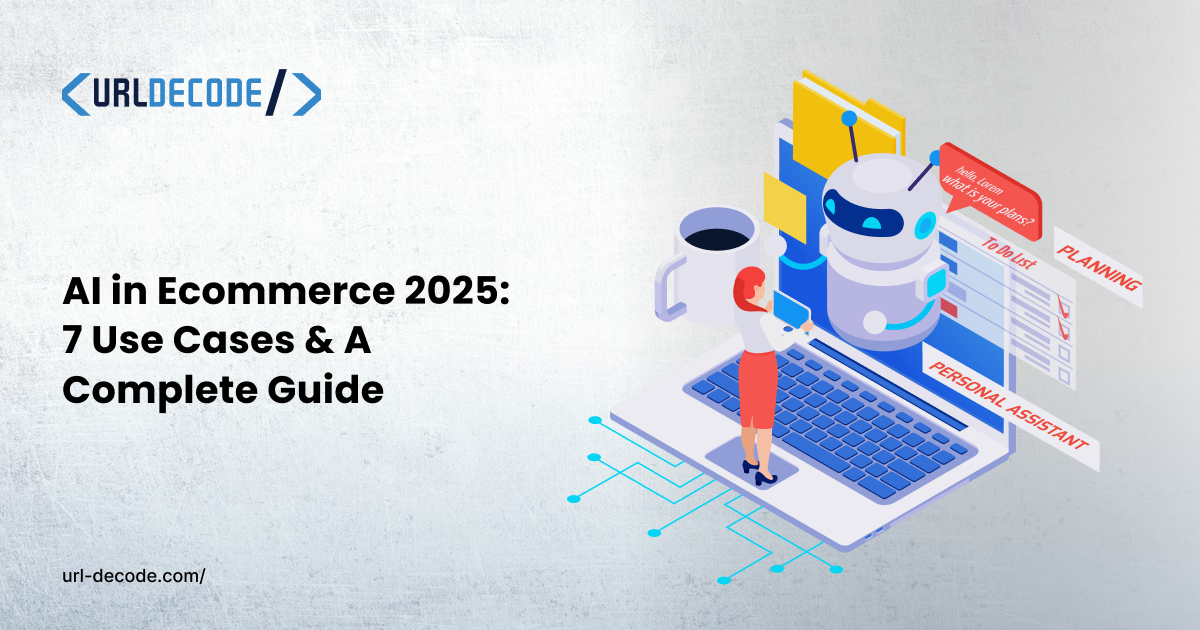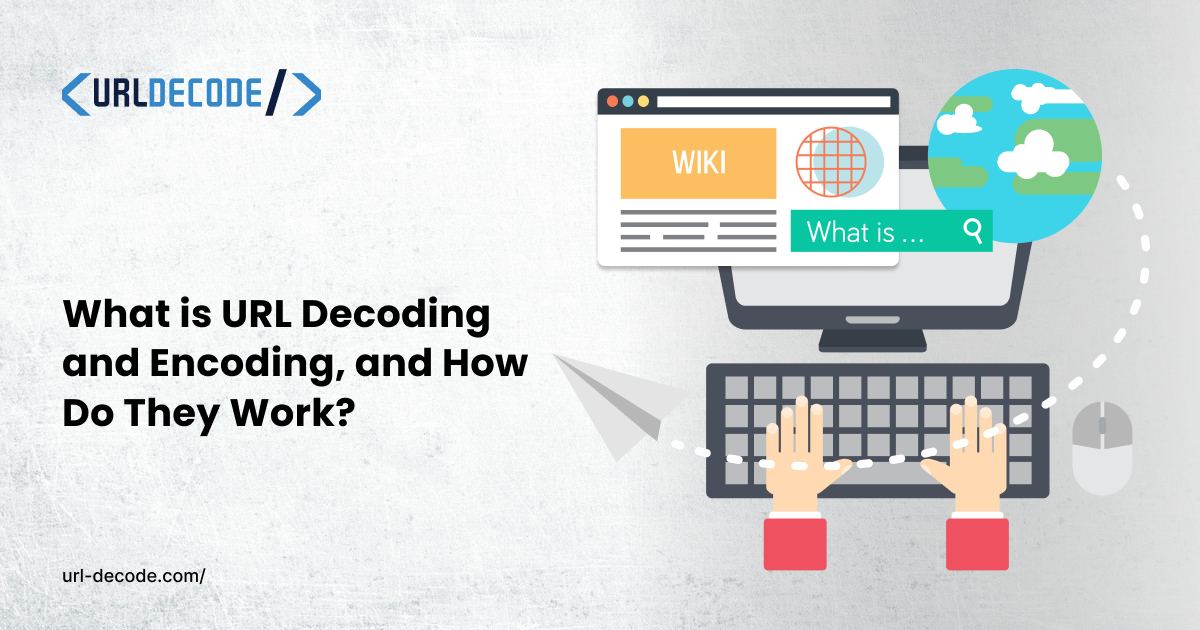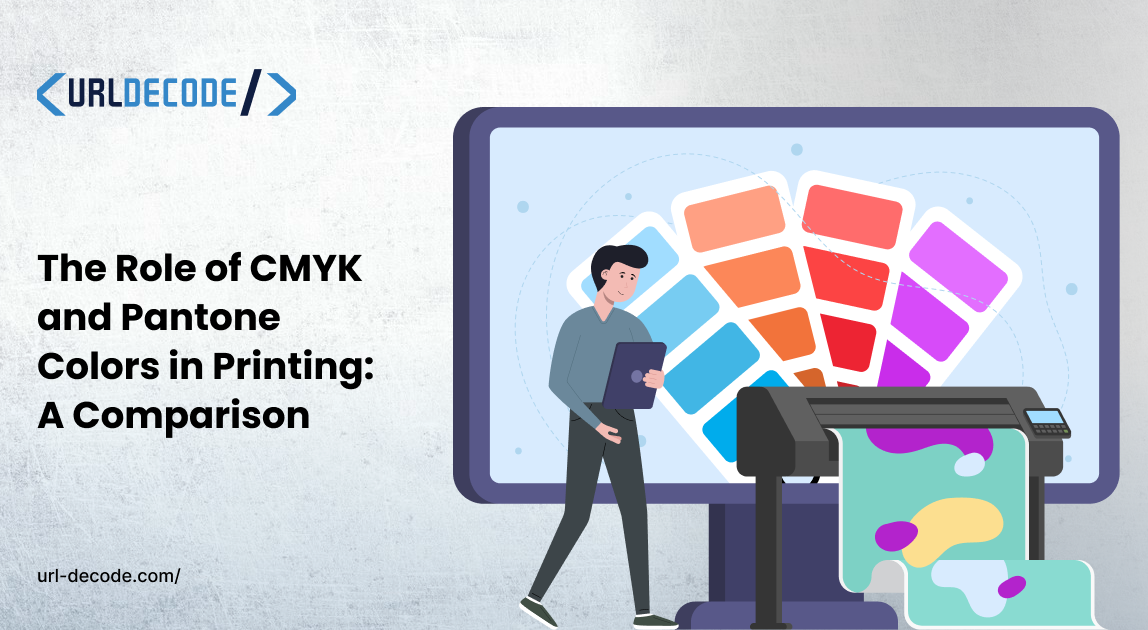AI in Ecommerce 2025: 7 Use Cases & A Complete Guide

The landscape of e-commerce is rapidly changing, with Artificial Intelligence (AI) being one of the most influential aspects of the industry. In 2025, AI is not a programmable tech feature, but an architectural innovator changing how businesses function and how consumers use the internet. AI integration exists in each and every layer of the e-commerce value chain, covering the client interface and the complex backend systems.
This detailed information, which follows on the remaining pages, discusses in detail the paradox of AI in commerce and its use cases, which are defining the new standards in e-commerce efficiency, personalization, and profitability.
The Key Pillars of AI in E-Commerce: An Integrated Perspective
AI usage in e-commerce is distilled in five core aspects: the interaction with clientele, operational workflow, and transaction security. Through the application of big data and algorithms, AI systems allow businesses to escape from traditional IR systems by granting deeper insights and automation.
Personalization and Its Effect on Customers
In e-commerce, one of the most useful things AI can do is hyper-personalize a shopping experience. This means going beyond recommendations and focusing on understanding and predicting customer needs.
With the use of AI and rapidly changing AI industry trends, countless product suggestions can be generated based on purchases made, products browsed, pages clicked, and even outside influences. These hyper-relevant suggestions improve the shopping experience and boost conversion rates and customer retention. Retailers stand to gain a lot in personalization, as the total orders and revenue stats show. AI personalizes offers and content based on real-time customer actions to improve relevance and usability.
AI Chatbots and Virtual Assistants
They provide answers to queries and provide product details as well as pointers to customers to carry them to the successful purchase at any time of the day using automated technology conversational tools, which makes them highly responsive. This cuts costs and time to respond while enhancing the customer interaction and happiness, especially when integrated with tools like a voiceover video maker that can create engaging audio content to guide customers through their queries. With the use of AI Chatbots, conversational commercial transactions become seamless to customers across many messaging and voice platforms, enhancing the ease of shopping.
Visual Search and Image Recognition
Upload and take photos to find identical or similar products matching the e-commerce catalog using AI augmentation image searching. Using AI, which uses computer vision, shapes, styles, and colors, as well as other visual elements, helps to find products faster, which is helpful in the fashion, home decor, and accessories industries. This improves the shopping experience as well as product discovery. For sellers, ensuring high-quality catalog images is essential, so consider sharpening images to show product details and improve matching accuracy. This improves the shopping experience as well as product discovery. Using an AI image-generating tool can further enhance product visuals and make search results more engaging.
Virtual Try-Ons and Augmented Reality
Virtual try-on tools use AI technology to let customers interact and visualize products like clothing, accessories, and even furniture, in a real-time simulated environment. This technology in use contributes to a decrease in return rates while increasing customer confidence and engagement in purchasing a product. It also helps close the gap between the online and real world. It helps make online shopping feel real and adds a physical touch to it.
Optimizing Operations with AI-Powered Efficiency
Aside from customer engagement, AI has been implemented in the back-end processes of e-commerce businesses. This has resulted in increased profits, reduced costs, and improved efficiency in operations.
Dynamic Pricing and Promotion Optimization
AI processes analyze the market demand, competitor pricing, inventory levels, and other real-time data to set prices optimally to maximize profit. It also sets promotions, like flash sales and bundled offers, at the right moment to make customer conversions. These processes guarantee maximum sales and profit, whether you're selling spare parts for trucks, Korean cosmetics, or high-end protective phone cases.
Inventory and Demand Forecasting
Data on sales figures, the dynamics of the market, the season, and outside factors such as weather and social media activity make it possible to accurately forecast demand. Predictive models could, therefore, fine-tune inventory in such a way as to reduce stockouts and overstocking, thereby ensuring a timely inventory replenishment. This, in turn, leads the business to save money on the overall supply chain, as the cost efficiency increases overall.
For businesses looking to strengthen inventory management, reliable product identification is essential. Solutions like Barcodes Pro make it easy to purchase UPC and EAN barcodes, ensuring products are uniquely trackable across sales channels. By integrating standardized barcodes into inventory systems, companies can streamline stock monitoring, reduce errors, and improve overall supply chain visibility.
Warehouse and Supply Chain Automation
AI has become imperative in the automation of the new design models of various elements of the warehouse and the entire supply chains. This could be the intelligent pick and pack routing, along with the optimized fulfillment center that offered predictive analytical foresight in logistics, and automated the entire process. This leads to a reduction in overall shipping time and costs, which improves the entire supply chain in terms of efficiency and reliability. Just as AI recruitment software streamlines hiring processes through automation and data-driven insights, similar AI-driven systems in logistics enhance accuracy and productivity across operations.
AI systems have implemented real-time analyses of transactions to pick out potentially fraudulent transactions alongside automated blocking of such transactions, thus protecting the business and the customers from financial damages. In addition to fraud detection, AI tools are increasingly used to identify policy abuse, such as customers exploiting return or refund systems, helping businesses maintain fairness and profitability. This describes fraud detection and prevention, which, in essence, is advanced in the e-commerce business.
The Growing Use of AI in E-Commerce
The new application of AI in e-commerce is changing the paradigm of virtual shopping and doing business. Online retail businesses increasingly use AI in assisting tools to personalize shopping experiences, for example, identifying and suggesting items a customer might want based on previous visits as well as purchases. AI-enabled Chatbots and Virtual Assistants also contribute significantly by giving instant 24/7 customer service. To keep teams aligned with these rapid changes, platforms like Coursiv can help structure learning materials and ensure continuous upskilling around AI-driven eCommerce practices.
Besides, AI eases with spellers and typos, ensuring the customer can find anything they want or have lost in a poorly framed search. On the business side, AI predicts and thus manages inventory, avoiding shortages and overstocking. It also provides fraud detection, securing online transactions. All in all, e-commerce as an industry is rapidly being enhanced in terms of speed, intelligence, and customer service.
The Trends of AI and When It Is Capable of New Tasks
Self-governing commerce and Agentive AI
One major trend is the growth of “agentive AI,” wherein intelligent AI split agents can control entire workflows with little human interaction. These AI split agents can perform tasks, self-complete purchases, product eluding, price comparison, negotiation, and so many more. Such will enable new, convenience-filled eras wherein customers' shopping journeys are fully self-governing.
AI Automated Marketing and Content Creation
AI is being used to assist in optimising marketing campaigns by automating SMS and email campaigns, as well as creating more strategic targeted advertising, like LinkedIn ads and Facebook ads. There are more, for example, AI tools focus on making more engaging product content, such as product descriptions and marketing copy, to help boost and engage. Platforms like Stack Influence leverage this automation to connect brands with micro-influencers and generate AI-enhanced content at scale, streamlining campaign creation while maintaining authenticity and performance. This is why learning updated strategies through a digital marketing course like Skillfloor is becoming relevant for marketers today.
Along with written and visual content, AI is also enabling brands to create engaging video formats at scale. Using text to video, businesses can quickly transform marketing copy, product highlights, and promotional messages into short videos suited for ads and social media. This helps maintain content consistency across channels while reducing production time and improving audience engagement.
Voice-Enabled Product Search and Commerce
Smart speakers are more useful because of the convenience and ease in transcribing and purchasing items and paying with one's voice. Customers get more ease as they get more convenience in purchasing goods from the comfort of their own homes. These concepts of effectiveness and efficiency are of growing popularity and in line with the current market.
Improve E-Commerce growth with SEO
Partner with Streak Ranker to accelerate your brand’s growth through niche-relevant, high-quality backlink services that strengthen search visibility. By leveraging advanced data analytics, we identify trending topics, analyze competitor backlink profiles, and uncover valuable link-building opportunities. This data-driven approach fuels smarter content creation, enhances domain authority, and drives consistent organic traffic.
Conclusion
Artificial Intelligence keeps changing e-commerce, and I do not see any reason to believe that. It's unrivaled in the sense that it could even help in personalizing customer service and conceiving outstanding strategies that regulate the efficiency in security, operations, and so on. Companies that utilize AI in their strategies will score bonus points in customer satisfaction and the profit they will acquire. AI is the one that will advance the online market with e-commerce, bringing along a smart, interconnected, and more autonomous approach towards it.




